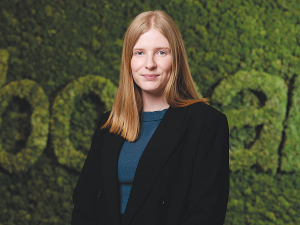Fonterra’s exit from Australia ‘a major event’
Fonterra’s impending exit from the Australian dairy industry is a major event but the story doesn’t change too much for farmers.
 Rabobank analyst Pia Piggott says diversifying export markets will be critical for New Zealand’s avocado industry.
Rabobank analyst Pia Piggott says diversifying export markets will be critical for New Zealand’s avocado industry.
A new report by agricultural banking specialist Rabobank says diversifying export markets will be critical for New Zealand's avocado industry.
In the report Australian & New Zealand Avocado Outlook 2022, the bank says the majority of New Zealand's avocado exports currently head to Australia. It adds that the development of other export markets will be essential to ensure sustainable growth opportunities for the country's producers as production climbs.
New Zealand's avocado production is forecast to grow by an average 6% annually for the next five years reaching 57,000 tonnes by 2026 - up from 44,0000 tonnes in 2021.
"We expect the majority of this production growth will come from the Northland and Bay of Plenty regions," says the report's author, Rabobank associate analyst Pia Piggott. "And while the general production trend will be in an upwards direction, we also anticipate this growth will be highly variable on an annual basis due to 'alternate bearing', which results in irregular crop loads from one season to the next."
The report says New Zealand is highly reliant on Australia as an export market for avocados with our trans-Tasman neighbours accounting for 79% of total New Zealand exports over the last five years.
"However, Australian supply has ramped up considerably of late - particularly in Western Australia - leading to a national oversupply, and it's essential that the New Zealand industry continues to grow its sales into other export markets that can pick up the slack when Australian import demand is lower."
Piggott says the New Zealand avocado industry has made significant progress growing sales to other markets in 2021, despite lower exports overall.
"New Zealand's total avocado exports by volume were back by 11% in 2021, in large part due to an oversupply of avocados in Australia and the resulting drop in sales into this market," she added.
"While exports to Australia fell, strong growth was recorded in other export markets with avocado sales to the rest of the world (excluding Australia) up by 154%."
This included improved export sales into Singapore, Hong Kong and South Korea. NZ exports made up 9%, 4% and 12% of total imports into those markets respectively. There was also strong export growth in China, Thailand, Taiwan and India.
Piggott says while recent sales growth into these markets was promising, further market diversification will be required by the New Zealand avocado industry over the years ahead.
"While New Zealand was less reliant on Australia in 2021, Australia still accounted for two-thirds of New Zealand avocado exports by volume," she explains.
"With Australian avocado production forecast to grow rapidly over the coming years, it's essential that the New Zealand industry continues to add new overseas markets and to expand the share of its avocado exports that are heading to other countries around the world."
The Meat Industry Association of New Zealand (MIA) today announced that Chief Executive Officer Sirma Karapeeva has resigned from the role.
The winners of the 2026 Hawke’s Bay/Wairarapa Dairy Industry Awards were announced at the annual awards dinner held at Copthorne Solway Park in Masterton on Thursday evening.
Environment Southland is welcoming this week’s decision by the Environmental Protection Authority (EPA) to approve the release of Blaptea elguetai, a leaf‑feeding beetle that will help control the highly invasive Chilean flame creeper.
This March, the potato industry is proudly celebrating International Women’s Day on 8 March alongside the International Year of the Woman Farmer, recognising the vital role women play across every part of the sector — from paddocks and packhouses to research, leadership, and innovation.
Fruit trader Seeka posted a record profit and returns to shareholders in 2025.
Recent weather events in the Bay of Plenty, Gisborne/Tairawhiti, and Canterbury have been declared a medium-scale adverse event.

OPINION: A mate of yours truly reckons rural Manawatu families are the latest to suffer under what he calls the…
OPINION: If old Winston Peters thinks building trade relations with new nations, such as India, isn't a necessary investment in…